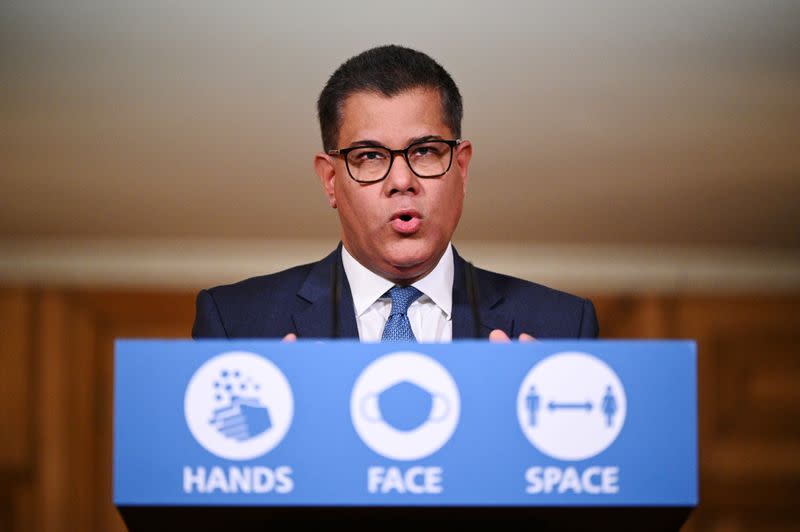Don't stockpile food, minister tells British shoppers

By James Davey
LONDON (Reuters) - British shoppers worried about the government failing to secure a post-Brexit trade deal with the European Union should not stockpile food, business secretary Alok Sharma said on Monday.
Britain and the EU agreed on Sunday to "go the extra mile" in coming days to try to reach an elusive trade agreement despite missing their latest deadline to avert a turbulent exit at the end of the month.
Sharma said he was confident food supplies would be maintained even if Britain leaves the bloc without a trade deal.
"I'm very confident that actually the supply chains will still be in place," he told Sky News.
"I would say to everyone - do your normal shopping as you would do and I think we'll find we're going to be absolutely fine," he said.
Britons stocked up on long-life goods in March as the country entered a COVID-19 national lockdown, stripping some shelves bare and forcing many people to queue for hours or drive further than normal to find goods such as toilet roll, tinned tomatoes and rice.
The British Retail Consortium (BRC) said on Sunday that retailers were doing everything they could to prepare for all eventualities on Jan. 1 - increasing their stocks of tins, toilet rolls and other longer life products so there would be sufficient supply of essential products.
It also said there was no need for the public to buy more food than usual as the main impact would be on imported fresh produce, such as fresh fruit and vegetables, which cannot be stored for long periods by either retailers or consumers.
The BRC has warned of higher prices without a trade deal. Tesco, Britain's biggest supermarket group, has said consumers should expect price increases of between 3% and 5%.
However, Sharma said the impact would be less.
"I think we are talking less than 2% in terms of a potential impact, obviously there will be certain products where it may be a little bit more," he told BBC television.
(Reporting by James Davey, editing by Paul Sandle)


